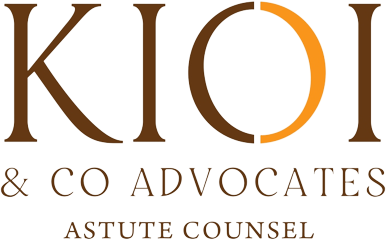
Simplified Guide to Patent Registration
Introduction:
A patent application is a formal request made to a Patent Office to secure exclusive rights over an invention. Unlike other forms of intellectual property, inventions must be registered to protect your rights. To obtain a patent in Kenya, inventors must apply through the Kenya Industrial Property Institute (KIPI) as per the Industrial Property Act.
Key Requirements for a Patent: Before your invention is granted a patent, it must pass certain tests. First, the invention must fit the legal definition of an invention. It must offer a solution to a specific technological problem. Second, it must meet three patentability criteria: novelty, inventive step, and industrial applicability.
Tests for Patent Approval:
- Is it an invention?
In Kenya, an invention must solve a specific problem in technology, either through a new product or process. Certain things, like discoveries or treatment methods, aren’t considered inventions under Kenyan law.
- Is it patentable?
To be patentable, an invention must be:
– Novel: It should be new and not publicly disclosed before the patent application.
– Inventive: It shouldn’t be an obvious extension of existing knowledge or technology.
– Industrial Applicability: It must have practical use in the relevant field.
It’s essential to check that your invention meets these criteria, as this helps avoid patent rejection or legal issues later.
How to Apply for a Patent:
Step 1: Appointing an Agent
If your business is based outside Kenya, you’ll need a local agent to file your application. Even if you’re in Kenya, having a professional agent with expertise in industrial property can simplify the process.
Step 2: Submitting the Application
Patent applications are made to KIPI and come in two types:
- Provisional Application:
A simpler application that gives your invention temporary protection for 12 months while you finalize a complete application. It’s useful if you want to test the market before committing to a full patent.
- Complete Application:
This requires more detailed documents, including:
- A request form (IP 3): This includes details about the inventor, applicant, and the invention’s title.
- A description: This explains the invention in detail so others in the field can understand how it works.
- Claims: These define the specific aspects of the invention that are new and protected by the patent.
- Drawings (if applicable): Clear, precise drawings may be necessary to explain the invention.
- An abstract: A brief summary of the invention for easy reference.
Step 3: Patent Examination Process
- Formal Examination: KIPI checks if all required documents are included. If any are missing or incorrect, the application may be rejected.
- Publication: After 18 months, your application will be made public, either in the Kenya Gazette or the Industrial Property Journal. Information such as the application number, title, and applicant’s name will be published.
- Substantive Examination: Once the formalities are complete, the invention will be evaluated for patentability. If the invention is found to be patentable, KIPI will approve the patent.
Step 4: Granting of a Patent
Once approved, you’ll receive the patent, which includes a certificate and the description, claims, and drawings. Your patent will also be recorded in the official register.
International Patent Applications:
If you plan to apply for a patent outside Kenya, you must first file in Kenya and wait six weeks before applying elsewhere. Additionally, if you’ve applied for a patent in another country, you can file in Kenya within 30 months under the Patent Cooperation Treaty, claiming priority from your original application.
Conclusion:
By following the correct steps and ensuring your invention meets all criteria, you can protect your intellectual property in Kenya and beyond. This helps safeguard your invention from competitors and allows you to benefit from its commercial potential.

